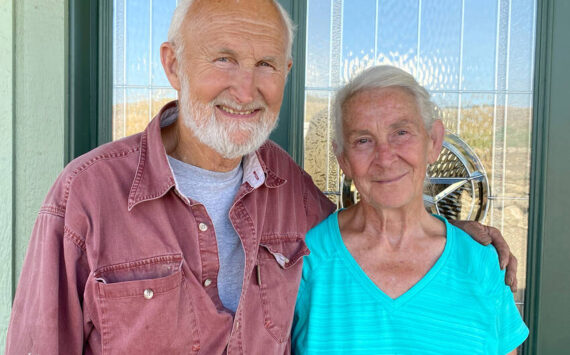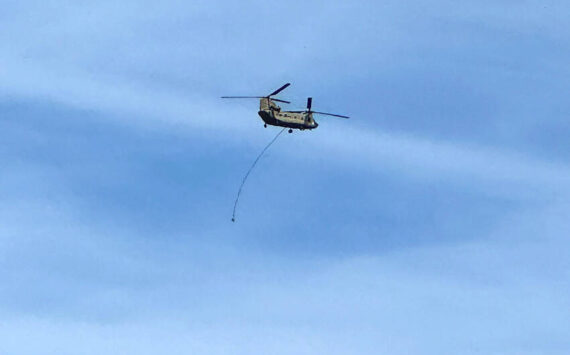Commissioner of Public Lands Hilary Franz is urging the legislature to empower her agency, the Washington Department of Natural Resources, to join in a growing market for carbon credits.
Under the legislation, Senate Bill 5688 and House Bill 1789, DNR would be able to sell carbon credits on the open market as many private industries already do. This would enable DNR to provide Washington-based carbon credits for the cap-and-invest program created under the Climate Commitment Act.
DNR currently has the authority to lease state-owned lands for carbon sequestration and capture, but cannot directly sell carbon credits. Using commercial leases is an unnecessary and time-consuming step that keeps DNR out of markets that private landowners already have access to, and results in less revenue generated for our beneficiaries. These leases are also capped at 99 years in length, which does not comply with permanence provisions with the Climate Commitment Act.
“I have two mandates from the people of Washington – use our public lands to build stronger communities and schools and protect our environment. This legislation accomplishes both of those,” said Commissioner Franz.
“We’ve seen carbon-driven climate change lead to more extremes throughout Washington, be it more extreme wildfires, hotter and longer heat waves, or wilder winter storms. By joining the private sector in selling carbon credits, we will create more jobs, restore more habitat, generate new revenue for local communities and use our forests, farms and tidelands to help fight climate change,” continued Commissioner Franz.
Leveraging natural climate solutions, across a suite of opportunities from kelp forests and reforestation to habitat restoration and working forests will:
- Generate upwards of tens of millions of dollars in new, reliable revenue streams for local communities,
- Support, enhance and expand working forests by reforesting post-wildfire areas or acquiring lands at risk of conversion, ensuring these forests continue to be harvested, which creates dual revenue streams – carbon payments and timber harvest sales,
- Directly support conservation and restoration of aquatic and riparian lands to support habitat resilience and recovery for salmon and other threatened species.
The legislation, prime sponsored by Sen. Liz Lovelett (D-Anacortes) and Sen. Joe Nguyen (D-White Center) in the Senate, and Rep. Kristine Reeves (D-Federal Way) in the House, will receive its first hearing at 8 a.m. Friday, Feb. 10, in the Senate Committee on Environment, Energy and Technology.
Through this legislation, DNR would have the authority to create local offset projects under the Climate Commitment Act. DNR would also be able to generate brand new sources of revenue for the schools, universities, libraries, fire stations, counties and other entities who have benefited from the management of state-owned lands since statehood. DNR would also be able to generate revenue for habitat restoration on its 2.6 million acres of state-owned aquatic lands.
DNR would also establish a transparent process for the sale of carbon credits that would help to ensure that the sales of these credits provide the greatest benefit to beneficiaries, local communities and the state.
“Washington state is leading the world on meaningful and measurable climate action, and this bill would be a significant step in furthering our ambitious goals,” said Sen. Lovelett. “Our public lands and working forests are the beating heart of communities across the state, but many don’t know of the incredible work that DNR does to support urban forestry and aquatic environments. This policy will equip the agency to be a changemaker in drawing down carbon and remediating ecosystems – both urban and rural. This will in turn support better physical and economic health outcomes and vitality for the people of our state.”
“Environmental conservation and decarbonizing are top priorities for us in Washington,” said Sen. Nguyen. “This bill is an innovative approach to moving us toward those goals while also generating dollars to put toward projects that future generations will benefit from. It’s a win-win.”
“Washington’s businesses want to take action on climate and offset their carbon emissions. They should be able to invest in local solutions that will benefit our schools and communities, which is what this legislation will do,” said Michael Mann, Executive Director of Clean & Prosperous Washington. “Enabling our Department of Natural Resources to have another tool in their toolbox to leverage natural climate solutions will provide businesses in the state with an option that will generate new revenue, support conservation and restoration, and help foster deep investment in the communities in which they are located.”
“Swinomish supports Senate Bill 5688 because it is a thoughtful, proactive and smart approach to ensuring that our state public lands and rural communities are able to generate important revenue through carbon offsets,” said Swinomish Indian Tribal Community Vice-Chair JJ Wilbur. “As we fight climate change, it makes good sense to give DNR the authority to generate revenue by selling carbon offsets where state lands are sequestering carbon or other providing other ecosystem services.”
“Washington’s public lands are a critical component in the fight against climate change,” said David Mendoza, Director of Public Advocacy and Engagement for the Natural Conservancy. “We support this legislation because it is essential for the Department of Natural Resources to have access to the full range of tools to manage forests along with ability to invest in natural climate solutions, while supporting conservation and habitat restoration, and providing needed revenue to local communities and schools.”
“Myno is developing large-scale facilities that remove carbon, improve forest health, and mitigate the climate crisis all while keeping our timberlands working, creating jobs, and generating economic growth,” said Thor Kallestad, CEO, Myno Carbon Corp. “This is where the economy is headed and where the opportunity lies, generating revenue from ecosystem and climate resilience. It is exciting to see DNR embrace this direction and realize the full revenue potential of our state’s natural resources. As a business embedded in the carbon and timber economy, we believe that SB 5688 and HB 1789 will not only increase revenues for trust beneficiaries and the State but also spur economic growth in our rural communities.”
“We all want to protect Washington’s nature we know and love for future generations. To meet the urgency of the climate crisis, we must utilize the myriad benefits that our forests provide to our communities— including ecological services and climate change mitigation,” said Alyssa Macy, CEO of Washington Conservation Action. “The launch of Washington’s historic Climate Commitment Act provides an opportunity for our public lands to support the state’s net zero emissions goal, and invest in our communities and natural resources. SB 5688 is a chance for innovation, diversified revenue for rural communities, and climate-smart stewardship on the 5.6 million acres of state lands managed by the Department of Natural Resources. We appreciate the agency for taking this important step forward in managing state lands for environmental, social, and economic value for everyday Washingtonians of today and tomorrow.”
The agency today also released its “Carbon Playbook,” a first-of-its-kind for a state agency, outlining the many opportunities that carbon projects offer to create new revenue streams. This playbook can serve as a model for other state agencies, local governments, companies, and nonprofits to follow as they consider the types of carbon offset projects that might most benefit their work and communities.






